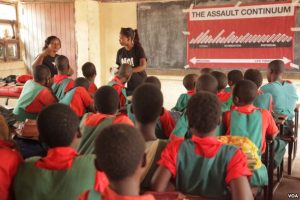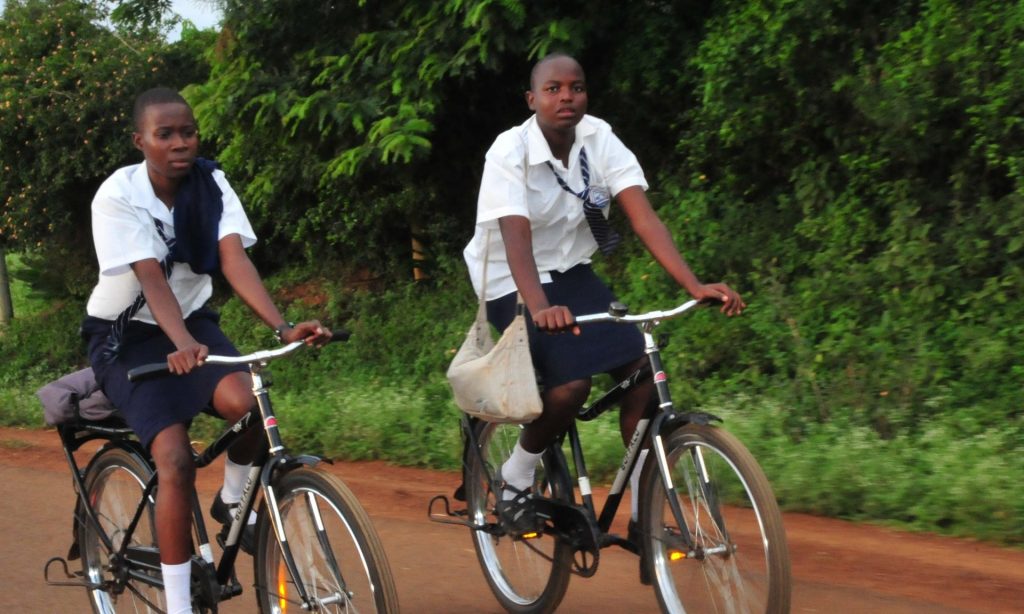Monica Nyiraguhabwa stayed in school but she was not oblivious to how lucky she was. Growing up in Luzira maximum prison barracks and later in the slum community of Luzira Kirombe Butabika, Nyiraguhabwa felt a need to respond to the limited life choices and opportunities available for young women and girls living in these areas.

Monica says while she remained in school, she saw many of her colleagues drop out and start families at a tender age. “I saw colleagues of mine who were children become mothers and later single-handedly having to take care of their children.
This became my motivation for establishing Girl Up Initiative Uganda within the same community to reach out to the girls and support them to make smart choices for their lives,” she says, adding; “I also hoped it would support those who had dropped out with hands-on skills that can enable them sustain themselves and families.”
In December 2012, Nyiraguhabwa and an American friend, Kimberly Wolf, decided to start an empowerment programme for girls. In 2013, the two friends co-founded Girl Up Initiative Uganda, a non- government organisation that would provide girls and young women with skills and opportunities to thrive and succeed as leaders in their communities through holistic education and economic empowerment.
The in-school Adolescent Girls Programme equips girls with social empowerment knowledge and hands-on skills trainings.
Some of the hands-on skills taught include training girls to make reusable sanitary pads to enable them stay in school even when menstruation starts. Girls are also trained to make eco-friendly briquettes, crafts, among others.
The organisation also set up a tailoring and design social enterprise called Mazuri designs to train girls who have dropped out of school and later absorb them as seamstresses, which has boosted them economically to support themselves and their children.
Girl Up Initiative in partnership with Plan International Uganda and other partners is also rolling out the Ni-Yetu youth empowerment programme in the five divisions of Kampala.
The programme empowers young people 13-24 years (in and out of school) with knowledge, attitude and skills for reducing gender-based violence (GBV) and improving their SRHR (sexual and reproductive health) outcomes. The project also promotes gender equality and social norm change through youth engagement and peer-to-peer mobilization.
In June this year, as part of the Ni-Yetu activities, Girl Up conducted a sexual and reproductive health rights service camp for adolescents in and out of school where clinical and psychosocial support services were extended to young people in the slum communities.
SRHR information is reinforced through dance and drama.
Monica’s main focus is on UPE primary school-going children. She says she decided to focus on primary schools because she needed to respond to girls’ challenges right from a tender age.
“Children become adolescents in upper primary and, of course, adolescent period comes with both excitement and challenges, especially for the girl child. If not mentored and guided, these girls could easily get lured into having sex and getting pregnant. So, I needed to address the problem from the root,” she explains.
She chose to take on children attending UPE schools because that is where most of the children in the slum community went. She says these schools are mostly ill-funded, coupled with mass populations and so it is difficult for teachers to reach out to each individual girl for support.

